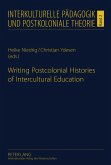With the intensification of globalization, there is a growing consensus that "international education has come of age". This book examines how the changing conditions of the present have given rise to an altered set of meanings and uses for international education, using the International Baccalaureate (IB) as its focal point. Currently adopted in over 2,500 private and state-run schools in 134 countries around the world, the IB has far surpassed the expectations of its founders, who struggled under considerable challenges in the 1960s to develop an internationally recognized diploma for university entrance. From its beginnings to its current prominence, the history of the IB richly illuminates the shifting meanings, uses, challenges, and progressive openings of international education in a global age. Documenting the ideals, goals, and complications faced by the IB movement, this book will be relevant to individuals interested in the IB in particular, as well as to those interested in the broader areas of global studies, progressive pedagogy, educational change, and globalization.
Bitte wählen Sie Ihr Anliegen aus.
Rechnungen
Retourenschein anfordern
Bestellstatus
Storno








